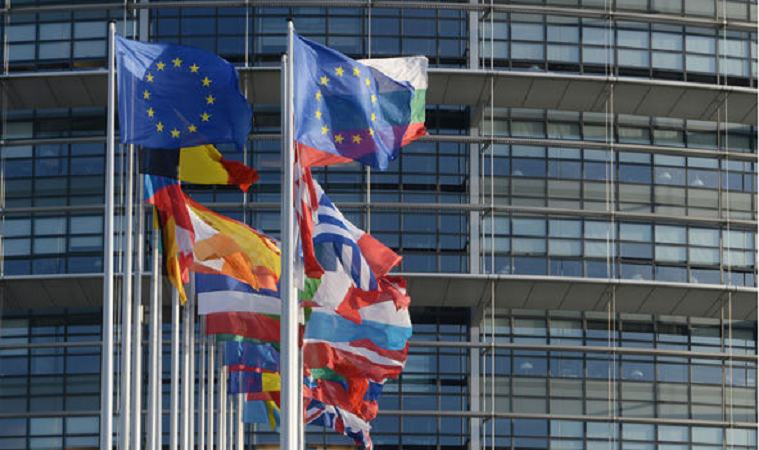
It is very hard to put a comment on Europe since across all core indicators, Europe is well ahead of Africa. But if not, the energies Europe have put on regulations, and specifically on American companies, have clouded it from seeing its own shortcomings. Yes, if you check Fortune Global 500, Europe may not have produced more than 4 NEW entrants in the last 30 years.
The list of new entrants into the club of the world’s largest companies, by revenue, belongs to China and the United States, with companies like Facebook’s Meta, Google’s Alphabet, ByteDance, and Alibaba.
Extrapolating from an ancient African proverb – men fight the wars, the women tell the stories – Europe has focused on regulating the world of technology, and in the process created some poison bills which continue to make it harder for most European companies to scale. Indeed, any tech company created in Europe today has a huge disadvantage on the first day compared with US and Chinese firms due to the asymmetric regulatory and compliance issues it must overcome in its home market.
Register for Tekedia Mini-MBA edition 19 (Feb 9 – May 2, 2026): big discounts for early bird.
Tekedia AI in Business Masterclass opens registrations.
Join Tekedia Capital Syndicate and co-invest in great global startups.
Register for Tekedia AI Lab: From Technical Design to Deployment (next edition begins Jan 24 2026).
Of course, you will ask: who is this village boy from Nigeria commenting on how Europe is balancing its budget with fines here and there? Relax: regulation is part of the market system, and someone can capture value offering that service. Europe’s strategy is working for it because it is #1 there! But it needs to check really well if that is a sustainable growth playbook. Yes, what should Facebook do when it cannot collect data to serve adverts for users who do not want to pay to be excluded? ‘The Commission is concerned that the binary choice imposed by Meta’s “pay or consent” model may not provide a real alternative’.
LinkedIn Summary: The European Union launched investigations Monday into Apple, Alphabet and Meta — the first under the newly implemented Digital Markets Act (DMA). The probes variously target Apple and Google’s app store rules; whether Google’s search results prioritize its own services; and how Apple might make it difficult for users to pick browsers other than Safari, per Bloomberg. Meta’s new Instagram and Facebook subscription fees will also come under scrutiny. Meanwhile, in the U.S., Apple is facing a sweeping antitrust lawsuit from the Department of Justice.
- The DOJ suit could reveal new information about the tech giant’s “inner workings,” and some confidential business dealings, Axios reports.
- Apple will release a new feature next month allowing it to wirelessly update iPhone software — while phones are still in their original packaging, Bloomberg reports.
A statement from the Commission reads partly:
“The Commission has opened proceedings to assess whether the measures implemented by Alphabet and Apple in relation to their obligations pertaining to app stores are in breach of the DMA. Article 5(4) of the DMA requires gatekeepers to allow app developers to “steer” consumers to offers outside the gatekeepers’ app stores, free of charge.
The Commission is concerned that Alphabet’s and Apple’s measures may not be fully compliant as they impose various restrictions and limitations. These constrain, among other things, developers’ ability to freely communicate and promote offers and directly conclude contracts, including by imposing various charges.
The Commission has opened proceedings against Apple regarding their measures to comply with obligations to (i) enable end users to easily uninstall any software applications on iOS, (ii) easily change default settings on iOS, and (iii) prompt users with choice screens which must effectively and easily allow them to select an alternative default service, such as a browser or search engine on their iPhones.
The Commission is concerned that Apple’s measures, including the design of the web browser choice screen, may be preventing users from truly exercising their choice of services within the Apple ecosystem, in contravention of Article 6(3) of the DMA.
Meta’s “pay or consent” model
Finally, the Commission has opened proceedings against Meta to investigate whether the recently introduced “pay or consent” model for users in the EU complies with Article 5(2) of the DMA which requires gatekeepers to obtain consent from users when they intend to combine or cross-use their personal data across different core platform services.
The Commission is concerned that the binary choice imposed by Meta’s “pay or consent” model may not provide a real alternative in case users do not consent, thereby not achieving the objective of preventing the accumulation of personal data by gatekeepers.”
EU Regulators Investigate Apple, Google and Meta’s Compliance with Digital Markets Act
---
Connect via my
LinkedIn |
Facebook |
X |
TikTok |
Instagram |
YouTube



